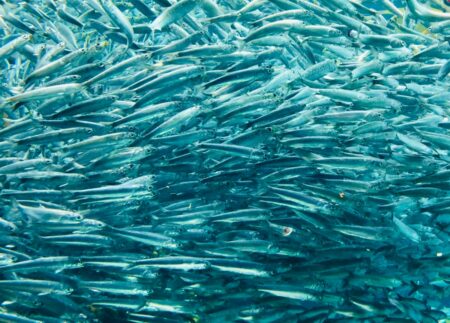The impacts of ocean acidification are profound and can affect marine ecosystems on every scale, from the global economy to the food supply. The resulting changes in ocean acidity hamper the ability of oceans to absorb CO2, which negatively affects the economies of coastal communities. Therefore, it is imperative to understand the impact of ocean acidification on marine ecosystems and take action now to prevent further damage.
These changes in the ocean could affect many different types of aquatic organisms, from coral reefs to jellyfish. They can alter the size of fish populations, reduce their abundance, and decrease their chances of survival. Despite the uncertainties surrounding the effects of ocean acidification, they will undoubtedly impact human societies. Because of the global food supply, changing marine ecosystems can threaten human food security and livelihoods. While marine ecosystems respond differently to acidification, some species are especially vulnerable to its effects, including mollusks. It has been estimated that global mollusk population loss could cost more than $100 billion per year by 2100.

Increased seawater acidity will also affect marine calcifying organisms, such as coral and mollusks. As the concentration of hydrogen ions increases, existing shells will be vulnerable to dissolution, and the overall health of marine ecosystems will suffer. Ultimately, these changes will impact tourism and fisheries, and the impacts will be felt for many decades to come.
Human activities are responsible for the rising levels of atmospheric CO2, which are causing ocean acidification. Human activities are responsible for increasing atmospheric CO2 levels, and a third to half of that CO2 is absorbed by the oceans. Although absorbed CO2 has a positive impact on atmospheric warming and climate change, the effects of ocean acidification on marine ecosystems go far beyond just human health.

Rising ocean waters slow the carbon exchange between the lower and upper layers of the ocean. This, in turn, causes the saturation of the upper layers with CO2 and deoxygenation of the lower layers.
Synthesis of a range of climate-change simulations concluded that ice-free waters could disrupt the functioning of marine ecosystems. Warming oceans may disrupt species ecosystems that rely on sea ice. Further, increasing human activities in ice-free waters may disrupt shelled organisms, which have adapted to life in colder waters. This shift in climate may lead to the collapse of many oceanic species.
Impacts of ocean acidification on coral reefs
There are several possible impacts of ocean acidification and global warming on coral reefs. While the effects of these factors may be international, local governments can make a difference in their communities. In Hawaii, for example, the use of chemical sunscreens was banned this year after scientists found that they were threatening the health of corals. Further, reducing single-use plastics is essential because microparticles from these products can enter the ocean from rivers. These microparticles could eat corals, causing them to become stressed and weak.
Ocean acidification can cause trouble for corals before they can build a skeleton. Observations have shown that larvae in acidic water had a difficult time finding a place to settle and died before reaching adulthood. However, the degree of trouble affected by acidification is not the same for every species. Some can use bicarbonate instead of carbonate ions, and others can live without skeletons.

Adapting to ocean acidification will require a coordinated effort on a local, national, and international level. The threats facing the coral reef ecosystem vary depending on the legal, economic, and social frameworks in each area. The national commitments must be taken into consideration when implementing a solution.
The Caribbean and Indo-Pacific regions offer less optimistic outlooks for coral reefs. The coral population there is low, which allows algae to outcompete corals. On the other hand, a healthy parrotfish population can keep algae populations in check. Although corals in these areas have not shown a high level of resilience to ocean acidification, some reefs in remote parts of the Pacific have demonstrated resilience to increased sea temperatures.
Coral reefs are the foundation of biodiversity. As a result of ocean acidification, coral growth rates are expected to decrease and their survival rates to decline. In the long run, this may threaten the food security of billions of people worldwide. It may also threaten the multi-billion dollar fishing industry, millions of tourism revenues, and even the protection of shorelines.














